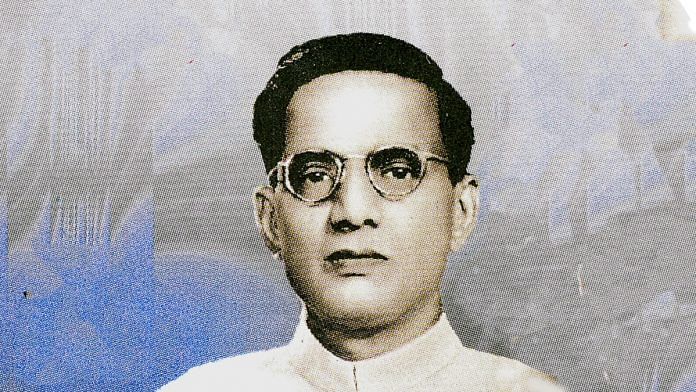A member of the Constituent Assembly, Deshbandhu Gupta also advocated the cause of an assembly status for the national capital of Delhi.
Deshbandhu Gupta, a revolutionary freedom fighter, journalist par excellence, and a robust legislator, stood true to what he believed in at all times.
A member of the Constituent Assembly, Gupta championed many causes throughout his life — he was a staunch defender of the free press, and an advocate for assembly status of the national capital of Delhi, among others.
Born as Rati Ram Gupta in 1901 in Panipat, he was given the title “Deshbandhu”, or friend of the nation, by Swami Shraddhanand and Mahatma Gandhi.
Political activism
Deshbandhu was a socially aware citizen even before he entered active politics. A member of the Arya Samaj during his teens, he would often take to the streets during protests. But it was the Jallianwala Bagh massacre in 1919 that shook him and left him wanting to contribute more to the freedom struggle.
After joining the Indian National Congress, he grew closer to the top brass of the party, including leaders such as Lala Lajpat Rai and Mahatma Gandhi. Gupta actively campaigned for the separation of Haryana and Punjab.
He once addressed a gathering in Delhi as part of the INC and the speech left such a mark on the audience that soon after, the British government banned him from giving any speeches in Delhi. Consequently, Lala Lajpat Rai assigned him the task of organising Congress committees in Karnal.
Gupta went on to become a part of the Punjab legislative assembly. He also got elected from Delhi later. As a member of the Constituent Assembly, Gupta raised some pertinent issues.
Also read: India’s founders gave us our Constitution. We must prove to them that we can keep it
Constituent assembly debates
Gupta actively argued against stifling the growth of newspapers in any way. He took strong objection to the imposition of taxes on newspapers and believed they deserved a treatment distinct from other industries.
“They are not an industry in the sense that other industries are. This has been recognised all over the world. They have a mission to perform. And I am glad to say that the newspapers in India have performed that mission of public service very creditably and we have reason to feel proud of it,” he argued in the Constituent Assembly.
Gupta went on to refer to the US Supreme Court judgment in the famous Louisiana case wherein a 2 per cent licensing tax was levied on the newspapers of the state. He even read the judgment to make his point, “The newspapers, magazines and other journals of the country, it is safe to say, have shed and continue to shed, more light on the public and business affairs of the nation than any other instrumentality of publicity.”
Levying a tax on newspapers would be offending the fundamental right of free speech, he believed.
He also argued for Delhi gaining more representation in the Parliament: “As regards Delhi, it is an admitted fact that its population has greatly swollen by the influx of refugees more than in any other town. According to the last census (1941), Delhi’s population was about 9 lakhs, but at present it is estimated to be about 19 lakhs. Therefore it would be very unfair for the Delhi province should the number of representatives be fixed according to the last census.”
Gupta argued passionately for the assembly status of Delhi even though it was a Union Territory, which was opposed by Dr B.R. Ambedkar. Finally, Delhi did get an assembly. It is, then, no surprise that Gupta enjoys the kind of veneration he does in the national capital.
The journalist
Besides being a freedom fighter and politician, Gupta also donned the hat of a journalist.
He started the Rozana Tej newspaper with Swami Shraddhanand, an Arya Samaj missionary. Gupta later became the sole owner of the newspaper, and soon approached veteran journalist Ramnath Goenka. Together, they bought the Indian News Chronicle in Chennai.
After Gupta’s death, Goenka renamed the newspaper to what is now known as The Indian Express.
Death and Legacy
Gupta died on 21 November in 1951. The freedom fighter has been memorialised in several ways in the city of Delhi. Besides a Delhi University college and a street named after him, a stamp with his image was also issued in 2010.
In 2008, the Haryana government announced an annual award of Rs 1 lakh to be given for “outstanding performance in the field of writing on the life and works of Lala Deshbandhu Gupta”.
Also read: Maulana Azad — the scholar-politician who laid out India’s higher education road map



